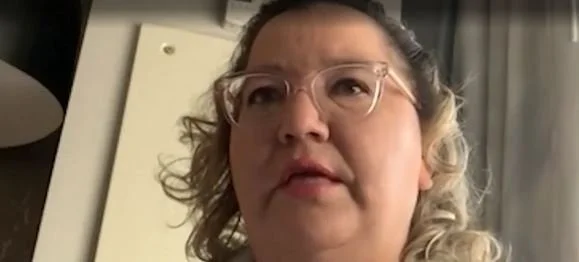AFN Manitoba Regional Chief Cindy Woodhouse spoke at the United Nations Water Conference recently in New York to highlight the rights of First Nations when it comes to safe drinking water. Woodhouse talked about water governance and the need for intensified action to realize the human right to safe drinking water and sanitation for all indigenous peoples. Some 10,000 participants gathered at UN Headquarters and online from March 22-24 to address the water crisis and “ensure equitable access to water for all.”
Regional Chief Cindy Woodhouse (Manitoba) Calls for Support of First Nations-Led Water Priorities and Realizing the Human Right to Safe Drinking Water
Manitoba Regional Chief Cindy Woodhouse of the Assembly of First Nations spoke at the United Nations Water Conference in New York, advocating for the rights of First Nations in any action related to water governance. She emphasized the need for intensified action to achieve safe drinking water and sanitation for all Indigenous peoples, which is a fundamental human right.
Media advisory - Parliamentary Secretary Duguid to lead Canadian delegation to the United Nations 2023 Water Conference
Media representatives are advised that Terry Duguid, Parliamentary Secretary to the Minister of Environment and Climate Change, will lead the Canadian delegation to the United Nations 2023 Water Conference. The conference will take place March 22–24, 2023, in New York City, New York. Parliamentary Secretary Duguid will deliver Canada's national statement during the plenary session and will also participate in various side events, including an event on Indigenous-led conservation for the health of water ecosystems in Canada, and the world.
Manitoba Chief speaking at United Nations 2023 Water Conference SharePlay Video Manitoba Chief speaking at United Nations 2023 Water Conference
Origami hummingbirds to make a splash at UN Water Conference
In an ancient Peruvian folktale, a hummingbird fetches water to put out a forest fire, one drop at a time. The other animals look on and laugh at her. Then, the little bird replies, “I’m doing what I can.” The tale inspired UN-Water, which coordinates the world body’s work on water and sanitation, to launch the ‘Be the change’ campaign for World Water Day on 22 March, that urges everyone to do what they can to change the way they use and manage water.
UM Delegation to attend UN 2023 Water Conference in New York
Access to clean and safe drinking water is an internationally recognized human right, essential to the full enjoyment of life. Yet, it is under immediate threat. Indigenous communities around the world have historically been excluded from many important decisions on water policy. There is now a growing global acknowledgement that Indigenous Peoples should play a significant role in decision-making about water-related policies.
Youth welcomed with ‘open arms’ to UN water conference
The conference, set to take place in New York from March 22 to 24, is the first in almost 50 years solely devoted to creating a water action agenda. It aims to address the “alarmingly off-track” progress on water-related goals and targets that are “jeopardizing the entire sustainable development agenda,” the United Nations wrote on its website. The conference is a unique opportunity to solve the world’s water problems, said Dousse, 36. “The 21st century will be blue or there won't be any other centuries for the generations to come,” Dousse said.
Sewage pours into Niagara River from troubled U.S. treatment plant
According to disturbing reports out of Niagara Falls, New York, millions of gallons of untreated sewage and other wastewater poured into the Lower Niagara River this past weekend during a power outage and pump failure. The Buffalo News reports that Niagara Falls’ problematic wastewater treatment system failed both Saturday and Sunday, according to information provided by a state-automated emergency alert system. Although there was no unusual rainfall in the area lately, wet weather and pump failure were given as the reasons that six millions gallons of untreated wastewater went into the river on Saturday.
Indigenous teen to advocate for clean water in Canada at UN
The first time Autumn Peltier noticed a boil-water advisory in a First Nations community, she was just eight years old. “I asked my mom what that meant,” Peltier, who is turning 15 this week, told CTVNews.ca by phone. “When she explained to me that our water is not safe to drink, it all hit me.” The Indigenous teen from northeastern Ontario has since been advocating for clean water in First Nations communities across the country. Peltier is in New York City this week to speak about the importance of clean water at the Global Landscape Forum at the UN.
A century of water: As Winnipeg aqueduct turns 100, Shoal Lake finds freedom
The taps to Winnipeg's drinking water were first turned on in April 1919, but as the city celebrated its engineering feat and raised glasses of that clear liquid, another community's fortunes suddenly turned dark. Construction of a new aqueduct plunged Shoal Lake 40 into a forced isolation that it is only now emerging from, 100 years after Winnipeg's politicians locked their sights on the water that cradles the First Nation at the Manitoba–Ontario border. "The price that our community has paid for one community to benefit from that resource, it's just mind-boggling," said Shoal Lake 40 Chief Erwin Redsky.
Great Lakes are rapidly warming, likely to trigger more flooding and extreme weather
The Great Lakes region is warming faster than the rest of the U.S., a trend that is likely to bring more extreme storms while also degrading water quality, worsening erosion and posing tougher challenges for farming, scientists report. In a report commissioned by the Chicago-based Environmental Law & Policy Center, the annual mean air temperature in the region increased 0.89 C in the periods 1901-60 and 1985-2016 — compared to 0.67 C for the rest of U.S.












